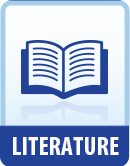|
This section contains 7,891 words (approx. 27 pages at 300 words per page) |

|
SOURCE: Hammond, Brean S. “Is There a Whig Canon? The Case of Susanna Centlivre.” Women's Writing 7, no. 3 (2000): 373-90.
In the following essay, Hammond considers Centlivre as a test case for the construction of a Whig school of literature that would stand in contrast to the Tory writers—including John Dryden, Alexander Pope, Jonathan Swift, and John Gay—who have traditionally dominated English studies. Hammond argues that Centlivre demonstrates Whig political sympathies with respect to specific political figures and events, but that she writes with a worldview correspondent with her Tory contemporaries.
Book the Second of Pope's Dunciad closes with a contest for would-be critics. They have to listen to the sentences of Henley and the verses of Sir Richard Blackmore without nodding off. The named contestants are a motley crew of atheists and Whigs. One of them is Susanna Centlivre—a child prodigy, Pope's note explains, whose prodigiousness...
|
This section contains 7,891 words (approx. 27 pages at 300 words per page) |

|


